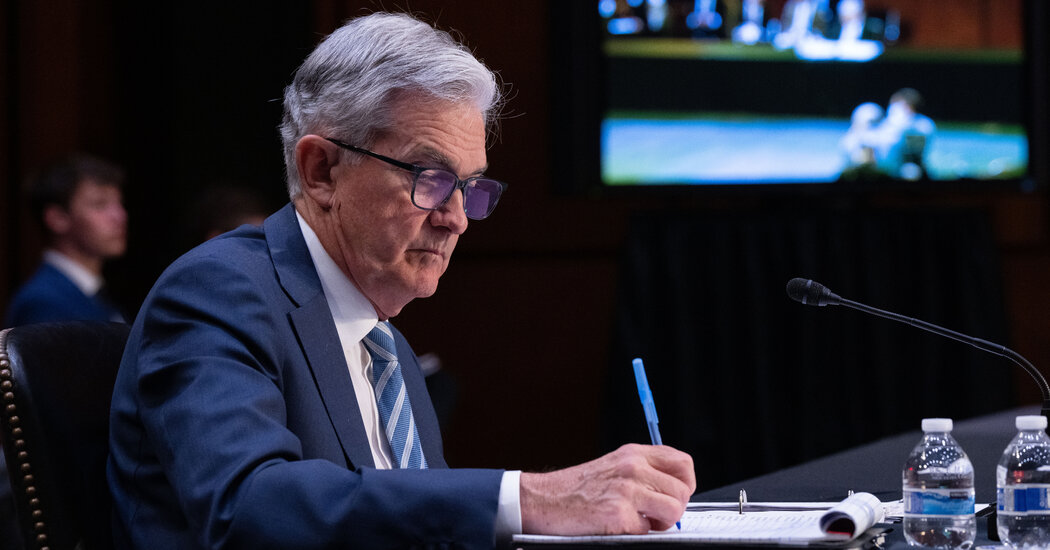Germany warned residents and businesses on Thursday that the country is in a natural gas crisis that could worsen in the coming months.
“The situation is serious and winter will come,” Robert Habeck, Germany’s economy minister, told reporters at a news conference in Berlin. He said the government had initiated the second phase of its three-step energy gas plan; the next phase would allow the government to begin rationing gas.
“Even if you don’t feel it yet, we are in a gas crisis,” he said. “Gas is now a scarce commodity. Prices are already high and we need to be prepared for further increases. This will impact industrial production and become a major burden for many consumers.”
The announcement comes a week after Russia’s state energy giant, Gazprom, cut by 60 percent the amount of natural gas it supplied to Germany, in what appeared to be the latest step to punish Europe for sanctions and military aid to Ukraine.
Gazprom blames the reduction of a compressor station turbine that was sent to Canada for repair and was not returned due to sanctions. But Mr Habeck called Gazprom’s austerity measures a deliberate economic attack by Russian President Vladimir V. Putin.
“Clearly Putin’s strategy is to create uncertainty, drive up prices and divide us as a society,” he said.
Recent developments have raised concerns that the gas crisis is getting a dangerous boost that could have unforeseen consequences for the economy at large, and that governments are not acting fast enough to stop it.
“We are one step away from gas rationing across Europe, which would affect many sectors, businesses and consumers,” said Biraj Borkhataria, an analyst at RBC Capital Markets, an investment bank. †Policy makers seem unable to act fast enough given the speed of events.”
Mr Borkhataria said Russia’s actions in Germany could lead to “contamination and knock-on effects” across Europe because gas markets are interconnected. For example, restrictions on flows to Germany are likely to affect prices in the UK.
Russia also inflicts financial damage on its business customers. One concern is that utilities that have contracts to buy gas from Gazprom will run out of fuel and then have to buy additional supplies at much higher prices to meet their obligations, leading to losses.
“Due to the restrictions on the Nord Stream 1 pipeline, only significantly smaller volumes of gas are currently coming from Russia, and replacements can only be bought in the markets at very high prices,” said Klaus-Dieter Maubach, CEO of Uniper, a German utility company. , in a statement. Uniper has said it only receives 30 to 60 percent of the requested volumes.
The shortages have pushed gas prices to extraordinarily high levels, about six times as high as a year ago. Mr Habeck warned that such high prices forced energy suppliers to take losses, which could threaten the entire energy market.
“If this flaw gets to the point where they can’t bear it anymore, the whole market is in danger of collapsing at some point,” said Mr. Habeck, drawing a parallel with how the Lehman Brothers collapse triggered the global financial crisis.
Maubach welcomed the government’s emergency plan as a “viable tool” to deal with the gas situation for the time being, but warned that more comprehensive measures would be needed “if the supply situation continues or worsens”.
Since the end of March, when Germany entered the first phase of its plan, the government has focused on increasing its gas storage capacity, which has a capacity of more than 58 percent. But by activating the second phase of the emergency plan, the government sees a high risk of long-term supply shortages.
The German government on Wednesday approved a €15 billion or $15.7 billion credit line for utilities to buy natural gas to fill storage facilities. In addition, the government plans to launch a program that would help the gas system cope by encouraging companies to temporarily suspend their use of gas. The unused fuel would then be made available to other industrial users at the cheapest price.
But the government decided not to allow gas suppliers to pass on sky-high energy costs to customers after companies opposed the measure.
German companies have been looking for alternative energy sources and ways to conserve gas, and Mr Habeck said they could have cut their consumption by about 8 percent in recent weeks. The government also passed a law allowing utilities to restart coal-fired power plants that were either closed or slated for phasing out. The Netherlands and Austria have taken similar measures.
Nord Stream 1, the main pipeline supplying Russian gas to Germany, is scheduled for regular maintenance for about two weeks from July 11, when the flows will stop, raising concerns that Gazprom could take advantage of the situation to continue supplying supplies. to stop longer.



